
This first interview is with a man of French and Spanish heritage called Mr. Jacques B. Mr. Jacques B. grew up in Morocco, and used to visit Paris as a child in the 1930s. He returned to Paris when he served in the Free French Forces in the Second World War. Mr. Jacques B. now lives in the U.S. where he is a Professor in French literature, and he still visits Paris almost every year.
Mr. Jacques B.’s unique view of Paris in the 1930s, 1940s and in modern times makes his recommendations about Paris truly one of a kind.
Could you tell us something about your past in Paris and what it was like in the 1930s and 1940s?
“I used to go to Paris as a child practically every year. My first memories of Paris go back to 1930- can you imagine? I was 7 years old in 1930. I’m going to be 90 years old now. Some memories are quite vivid. I remember going up the Eiffel Tower as a child in 1930. And then, you know, everybody goes to the Eiffel Tower two or three times in a lifetime.”

How did a French soldier of the Free Forces end up as a professor in the United States?
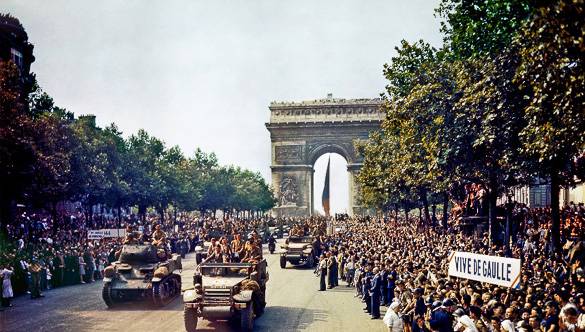
You went to Harvard, right?
“Yes. I did my doctorate there. Now I’m a professor of French Literature. My publications are mostly on French Fairytale and Folklore.”
Can you say you really feel like an American now?
“I feel very much like an American, but when I’m in Paris my personality changes. I feel young again, because I don’t speak English in Paris except to my wife. But I speak French and they don’t know I’m an American. After all, it’s my native language and I taught it for forty years. And besides, I’m a linguist: I love languages. I love to speak English as well as I can, and French as clearly as I can. Although sometimes I forget grammar, or spelling in one language or the other.”
Why do you keep returning to Paris?
“My interest in going to Paris is mainly sentimental. The main idea is that I like going to Paris to see how much it has changed from first what it was during my childhood to how different it is from what I found in August-September 1944. Paris changed a lot after its liberation. So it’s interesting for me to go to Paris for that reason.”
“But the main pleasure for me and for my wife in going to Paris is not necessarily the museums, the familiar sites or things like that. It is simply living in Paris, because Paris has a certain special charm. And we don’t rush through Paris: we look at the memorial plaques that tell you things.”
“For instance, it tells you this is where Jefferson was living when he was in Paris, this is the café where Ben Franklin went on the left bank. These things are important. What people, what most tourists miss from Paris, is what you can pick up just by walking along the streets of Paris. And what the history of Paris, the miseries of Paris during the German occupations, can tell you.”
There are lots of plaques that tell you, for example, on this spot a French policeman was shot during the liberation of Paris. There are special plaques outside of Paris schools that tourists always miss. If you walk by a Paris school, which is easy to recognize by the French flag hanging outside, look to the walls at the entrance and they tell you what has happened there. The plaques here, they tell you that.”
“It is a lesson in history to go to Paris. But apart from that, the life in Paris is pleasant and relaxed. It is a misconception that the French in general are not pleasant to foreigners. On the contrary: if you make an effort to speak the language, they’re very appreciative.”
Can you tell us a little more about the cultural differences between Parisians and Americans?
“There is a very good book [I can] recommend wholeheartedly to people coming to Paris. The title is 60 Million Frenchmen Can’t Be Wrong. It’s in English, and it’s very good. It tells you about French usages [and cultural differences]. For instance, [it tells] how foreigners often come to Paris with a calling card with their name and say this is my phone number this is my address, if you come to Dover call us!”
[While in Paris] “you can have a great friendship with a lot of French people coming to the same café, the same place, while you don’t even know their name. And you know the French like to remain anonymous. I don’t know why. Perhaps it’s leftover from the occupation, you know, you don’t want to leave a written record of who you are, because during the war that kind of information was more or less secret.”
“In Paris, for instance, there’re some people [we meet] in a little café where we’d go almost every time [we visit Paris]. We tell them: give us your address. So she, the owner of the café, went to a photocopy shop and she gave us a huge piece of paper with their address and telephone number, and their names- finally! [The names we’d never learned before]. This is a very particular experience for the French. And that kind of experience is explained in the book 60 Million Frenchmen Can’t Be Wrong.”
You mentioned that you like living in Paris as a local instead of as a tourist. Do you also feel more like a local when you’re staying in an apartment in Paris as opposed to in a hotel?

“A good tip is that if you rent an apartment, don’t try to get an apartment in the most well known parts of Paris. For instance, try to avoid the Boulevard Saint-Germain or the 6th Arrondissement. Forget it. It’s too standardized. The best part of Paris is the eccentric part. For instance, the wonderful part of Paris, dominating Paris, is called Belleville in the 19th Arrondissement. It’s uphill and you have very nice places where you can find vacation apartments.”
On your next trip to Paris you’re going to be staying in an apartment in the 13th Arrondissement…
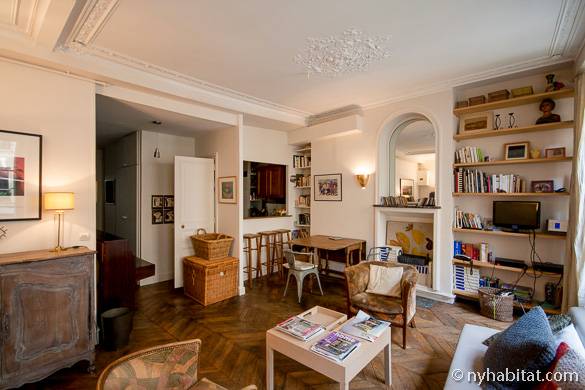
“We recommend, however, in central Paris the part that’s not too crowded. It’s the 2nd Arrondissement. The metro stop there is Bourse, the old Bourse. There it’s close to the old French Public Library, the Bibliotheque Nationale, and this is where you find the ancestors of the American malls. The famous covered passages, for example the Passage de Panorama. It’s also within walking distance from the Galeries Lafayette and Printemps on the Boulevard des Italiens. The Printemps mall is very nice, very close to an American mall. Both the Galeries Lafayette and Printemps are worth visiting. In Galeries Lafayette in the main building, go to the top floor and there’s a terrace where you can dominate all of Paris. It’s worth visiting and you can take a photograph there! It’s free to visit. We recommend that central part of Paris.”
You also stayed in a Le Marais apartment in Paris before?
“There was one near Bastille in Rue de la Roquette that was interesting. I chose this apartment because it was in a somewhat popular street near the Faubourg Saint Antoine, near Bastille, which is a nice area that we recommend. And it has small restaurants, small stores, which we like. And we like being able to walk to all the central locations in Paris. For us, Paris is walking. It’s one of the best walking cities in the world.”
“One other recommendation is very simple, three words: forget the metro. Don’t use the metro: use only the bus! Because then you can see the streets. On the metro you’re underground, you don’t see a damn thing. When you take the bus in the first place you’ll see the streets and in the second place you’ll have to practice minimal French! Get a map of the bus system.”
You mentioned you don’t visit a lot of tourist places in Paris. Why is this?

“One tourist thing I do recommend is to take a boat ride on the Seine River. You can go on a river cruise with the Bateaux Mouches, which is worth visiting!”
What time of year do you prefer to visit Paris?
“In the spring. Not in the winter. Spring, then summer is the best time. Of course things are more expensive then but that’s okay. But whatever the season, there are about Fifty-Thousand US citizens who love Paris enough to make it their permanent residence!”
Do you think Paris is also more beautiful in spring?
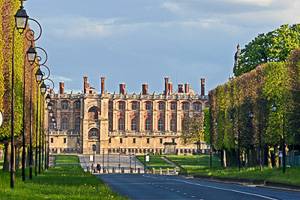
“One last other tip: forget Versailles! Don’t go there. You’ll be in line for hours and you won’t see a thing. The best suburb to visit is Saint-Germain. It’s beautiful: there’s a magnificent view of Paris, there’s a couple of museums, and the streets are quiet and modernized, nice cafes and restaurants. And well that’s one of the sentimental reasons for me to go to Paris because that’s where I was a soldier during the war. There was a famous military station there where I stayed. We as soldiers had to commute on Sundays and time of leave from Saint-Germain to Paris, which is a very short train ride.”
When you visit Paris now, what do you think of the modern Paris?
“I don’t care for it. I don’t go to the new financial district. What I might visit next time is the new library, which is rather impressive. La Bibliotheque Nationale [the National Library of France]. You know there are two abbreviations that all French know: TGV, the Train a Grand Vitesse [the very fast train]; and TGB, the Tres Grande Bibliotheque [very large library]! We like the French railroad station: we’ve taken the train from Geneve to Paris. It’s a wonderful service. I wish the U.S. had as good a train service as the French have.”
Do you think you’ll keep visiting Paris in the future?
“So long as my health holds, I will go.”
We would like to thank Mr. Jacques B. for his time and his wonderful recommendations.
We also hope you’ve enjoyed this interview. If you have anything to add about Paris through the years or if you have any questions for Mr. Jacques B., please let us know in the comments below!


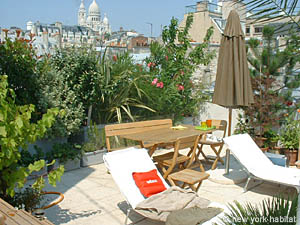
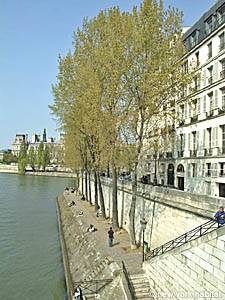
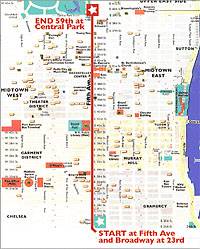
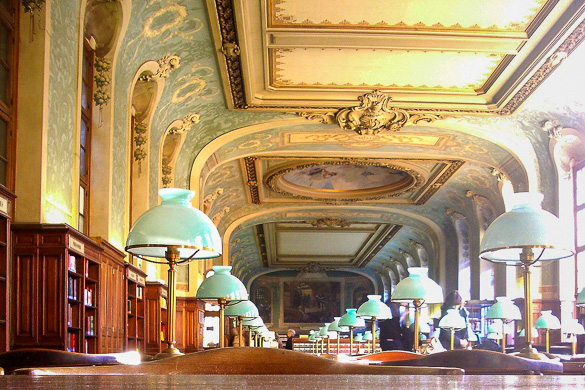
Leave a Reply